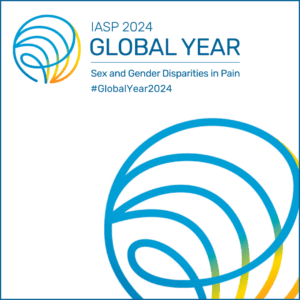Every day, around the world, clinicians and scientists are working hard to better understand and treat chronic pain. Important advances are being made every day. However, many people are left to live with chronic pain and to manage its impact on their day-to-day lives. For many people this can also lead to feelings of frustration, stress, anxiety, low mood and depression. This is why pain management programs continue to be considered an important part of managing chronic pain.
While there is a lot of evidence for the helpfulness of pain management programs, we know that many people with chronic pain never seek, or struggle to access, face-to-face clinics that offer these programs – often due to barriers including distance, time, cost, stigma, and long waiting lists. In an attempt to overcome these barriers, the eCentreClinic Team and I, with support from the Motor Accidents Authority of NSW, decided to see if we could create an acceptable, helpful and safe online pain management program. That is, a program that could be completed entirely online.
We created the Pain Course:[1] an 8-week course that consists of 5 core lessons, 5 simple sets of do-it-yourself homework tasks, lots of additional resources, and detailed case stories from past participants with chronic pain. The Course was designed to include all the information – including proven practical skills – that are typically covered in face-to-face programs. Our goal was to help people maximise their ability to manage pain and to maintain their emotional well-being.
What did the results from the first trial of the Pain Course look like? By the end of 8 weeks, people who received access to the Course reported significant improvements in a range of areas:
- 41% of people reported ≥ 30% improvement in day-to-day activity levels.
- 25% of people reported ≥ 30% improvement in their average pain levels.
- More than half (58%) of people reported ≥ 30% improvement in symptoms of anxiety,
- 41% of people reported ≥ 30% improvement in their symptoms of depression.
- Importantly, 100% of participants reported the Course was worth their time and that they would recommend it to a friend with chronic pain.
We have been very encouraged by these results, especially given the wide range of pain conditions experienced by participants in the Course – e.g., 41% reported pain in ≥ 3 body areas and pain for an average of 7 years.
Where to from here? We have received lots of helpful feedback from participants we have worked with and we are using this to further improve the Course – we take feedback from participants very seriously. We are now starting to run more trials to understand how much support people need as they work through the Course (we have found that many people make significant improvements, even with little or no feedback from a clinician) and how we can make the Pain Course as helpful as possible.
A quick note …
We would like to gratefully acknowledge the participants in our researchfor their involvement and feedback. The authors thank the Motor Accident’s Authority (MAA) of New South Wales, beyondblue, Chronic Pain Australia, Pain Australia, the ACI Pain Network, the Australian Pain Management Association and Arthritis Australia for their support of this research to date.
About Blake Dear
 Blake is a Co-Director of the eCentreClinic and a National Health and Medical Research Council (NHMRC) Public Health Fellow at Macquarie University, Sydney. He has a strong interest in developing innovative self-help programs that improve access to evidence-based treatment for people with common mental and chronic health conditions, especially people with chronic pain.
Blake is a Co-Director of the eCentreClinic and a National Health and Medical Research Council (NHMRC) Public Health Fellow at Macquarie University, Sydney. He has a strong interest in developing innovative self-help programs that improve access to evidence-based treatment for people with common mental and chronic health conditions, especially people with chronic pain.
Reference
[1] Dear, B., Titov, N., Perry, K., Johnston, L., Wootton, B., Terides, M., Rapee, R., & Hudson, J. (2013). The Pain Course: A randomised controlled trial of a clinician-guided Internet-delivered cognitive behaviour therapy program for managing chronic pain and emotional well-being PAIN, 154 (6), 942-950 DOI: 10.1016/j.pain.2013.03.005



